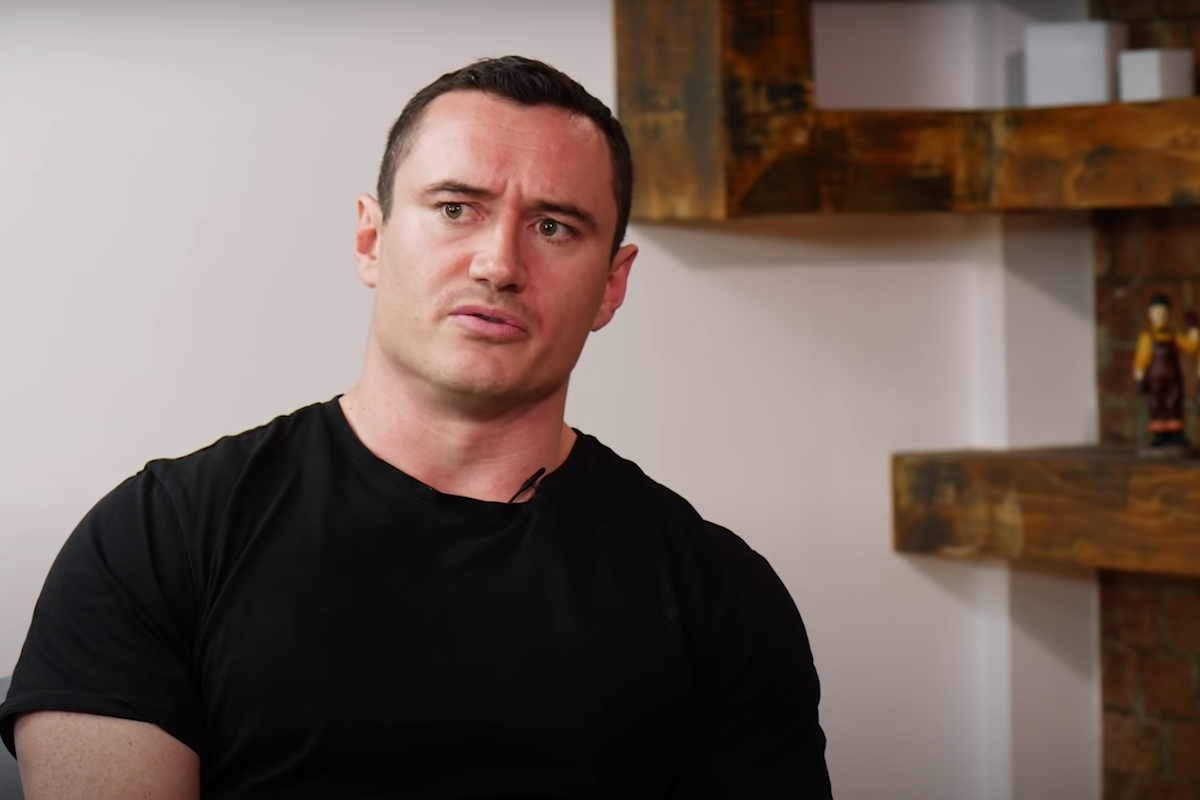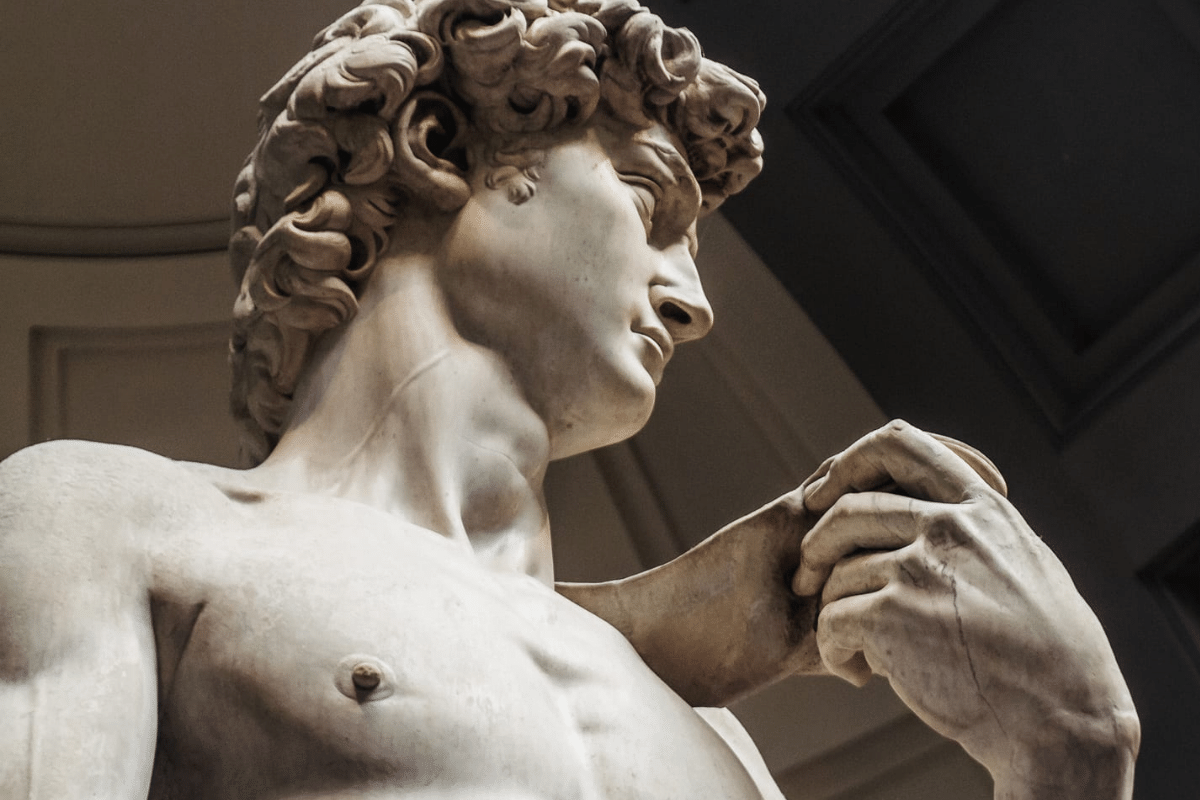Education
Education and Masculinity—An Interview with Will Knowland
The right to free speech includes speech that might offend, shock, or disturb. And it includes not only the right to express such speech but also the right to receive it.

“What’s the one thing we’re not talking about but we really should be?” Triggernometry’s Francis Foster asked now-sacked Eton teacher Will Knowland. “I think the crisis of masculinity, especially in all boys’ schools, needs to be addressed urgently,” he replied. “These institutions, many of them are embarrassed to exist and they need to think hard about why that is.”
Masculinity is at the heart of the dispute that led to the English teacher’s dismissal from Eton. When a female colleague complained about Knowland’s Patriarchy Paradox video, the school demanded he remove it from his personal YouTube channel. Knowland’s refusal to do so without being given a reason, eventually resulted in the father of five being removed from his post. Extensively covered by mainstream press, the dispute has brought to light the extent to which Eton has been invaded by ideology, and raised questions about masculinity’s place in society as a whole.
In the following interview, Knowland reflects on education, free speech, male teachers, and the need for society and educators to accept that “stoicism, competitiveness, aggression, and dominance cannot be dismissed as intrinsically toxic, nor can men be redesigned from scratch.”
You seem to have a bond with your pupils—that was the impression I got reading the letter signed by the Etonians calling for your return. How do you approach teaching?
Jacques Barzun called teaching a transaction, not a relationship. And a fundamental part of that transaction is what anthropologists term enculturation: the process by which culture is transmitted by society and acquired by the individual. But students are feeling increasingly deracinated. By contrast, good teaching involves introducing students to the great conversation about what it means to be human, helping them to hear the ideas of today as part of a dialogue deeply rooted in the past. At the heart of this great conversation as conceived in a classical liberal Western tradition is openness to free speech as a prerequisite for the discovery of truth. In other words, free speech is valuable because truth is: speech is rational, and arguments involve both sides ultimately winning the truth.

What do you consider to be a teacher’s most important duty?
Developing the concept of enculturation. “Culture” comes from the Latin cultura, meaning “cultivating” and, figuratively, “care and honouring” from colere “to tend, guard.” The required emphasis is probably on guarding now. It might be the case that the Aristotelian concept of a liberal education is under threat. Traditionally, it emphasised grammar, logic, and rhetoric as the tools of thought. By contrast, much modern education aims at telling students what to think about various social issues rather than teaching them how to think. Subordinating a genuine liberal education to political purposes, such a vision of education is ultimately merely servile.
Jordan Peterson, Warren Farrell, and Christina Hoff Sommers have argued that schools are bashing boyish traits. And boys are now falling behind girls at school and dropping out of university at alarming rates. Are male teachers the answer to addressing this imbalance?
Yes, teaching is overwhelmingly female. Over all grades and all schools, women teachers outnumber men three to one. People often focus on primary schools because only one-in-eight primary classroom teachers is a man. But primary school teaching in particular has always had a fairly low percentage of male teachers. It was 25 percent in 1970. Sadly, Graham Holley, the former Chief Executive of the Training and Development Agency for Schools, pointed out in his 2008 letter “The Quiet Conspiracy” that research shows the “fear of being labelled a paedophile is the single biggest deterrent to men who would otherwise consider teaching in our primary schools.” That is a form of stereotyping the teaching unions, despite talking about the importance of avoiding stereotyping in other contexts, tend not to say much about.
And despite talking about the importance of role models, they don’t say much about the importance of male role models for male pupils either. In 1970, about 60 percent of secondary teachers were male, and it’s been declining since—but especially rapidly in the last 15 years, even faster than the number of male primary school teachers. There was a telling comment on the petition letter calling for my reinstatement: “cheers for the weights & rugby training—let’s not let the school fire one of the few strong male role models we had.”
But ultimately I don’t think schools can fix these social problems. Parents will always be children’s main educators, and merely being male doesn’t make a teacher a good male role model. Some female teachers can teach boys to value themselves and traditionally masculine virtues better than self-loathing male teachers can.
Was there any specific event that told you things have gone too far at Eton?
I had numerous gender critical resources blocked despite being told the resources were excellent. The first time it happened, I realised the principle at stake: preventing students debating the full range of ideas based on what colleagues trying to get a stranglehold on the curriculum claim to find offensive. This hysterical emotional sensitivity is really just a form of aggression—playing the victim while really being a manipulative cry-bully. As Rod Dreher has pointed out, the pitter-patter of woke tears is no different from the stomping of Brownshirts’ boots. Their reaction to “The Patriarchy Paradox” is the clearest proof of their agenda. The flak only gets heavy when you’re over the target.
Why do you think your experience has resonated with so many?
By law, curriculum content is exempt. Students are supposed to be able to debate any ideas, no matter how controversial. But for the first time, Eton argued that, strictly speaking, this exemption only applies to students, not staff. So the school of George Orwell—with a room called “Debate” in every boarding house—couldn’t have the debate. But let’s suppose just for the sake of argument that there really were external regulations that forced this. Entirely unrelated to those external regulations, Eton didn’t even want the students to have the chance to consider the ideas in the lecture critically in their own time on YouTube despite the fact that I’d added a clear disclaimer at Eton’s request.
If there is one thing people should take from your Patriarchy Paradox video, what would it be?
Although it’s of course partly shaped by culture, patriarchy is also partly rooted in biology and the evolutionary interests of women, which is why all societies have been patriarchies. And where the sexes differ, it is the result of sexual rather than natural selection: men, both physically and psychologically, have been shaped by women, and such traits as stoicism, competitiveness, aggression, and dominance cannot be dismissed as intrinsically toxic, nor can men be redesigned from scratch.
This is also about your free speech and about the boys’ right to hear it.
The right to free speech includes speech that might offend, shock, or disturb. And it includes not only the right to express such speech but also the right to receive it. So this is certainly about the boys’ right to hear different viewpoints: all students must have the right to freedom of thought, and cancel culture threatens this.
How do you explain what happened to your kids and what lessons would you like them to draw from this?
Many of the topics addressed in the video are present throughout the curriculum nationally. My 15-year-old daughter watched it with her friends, and they couldn’t see what the fuss was about. They found it interesting and refreshing. I would like them to learn that principles matter and that, however high the cost of not taking a Faustian bargain seems, the cost of taking it is always higher.
I could have stayed teaching at Eton but only without upholding the spirit of fearless debate in education. It is vital to grasp that the content of the lecture was deemed gross misconduct, not just the way I delivered the content or my asking why I had to delete the lecture from my personal YouTube channel after it had already been cancelled as a lecture at Eton. The lecture content itself—a 33-minute talk with over 40 academic references aimed at provoking debate—was gross misconduct according to Eton’s own equality and diversity policy, even though curriculum content is exempt under the Equality Act. That is why I’d lost my job even before I was sacked.

There have been calls for Eton’s head, Simon Henderson, to resign. What is he getting wrong?
Eton College transcends its headmaster, who should be primarily a custodian, not a revolutionary. No headmaster should seek to remake Eton in his own image or seek to appease an ideology aggressively hostile to Eton’s mere existence as a boys’ school.
As a society, where do we go from here?
As I’ve said, I think parents are children’s main educators. Schools shouldn’t aim at being primarily instruments of social change. The misguided attempt to do so has arguably worsened matters. In 1969, for example, over 26 percent of the university population was of working-class origin—more than double that of our nearest rival, Sweden. And 17 out of 21 heads of major civil service departments in the early 1970s were ex-grammar school students. Focus on teaching children the best that has been thought and said, and the social change will take care of itself. To facilitate that, however, free speech in education must be defended robustly: the problem with the best that’s been thought and said is that it tends to win debates, leading people to cancel them.






